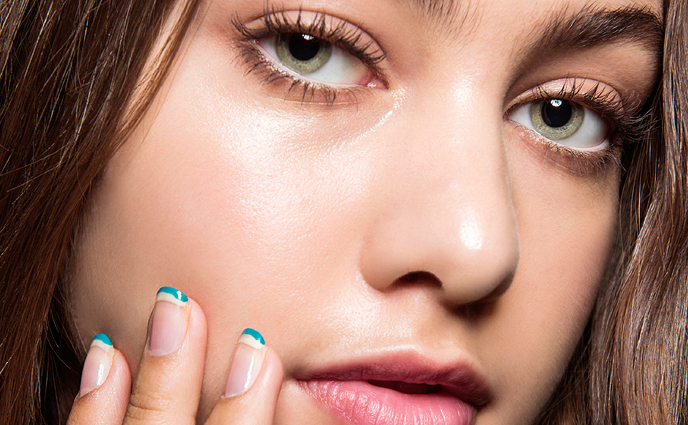Sure, the pill sounds like it can be a magic wand for acne sufferers, but what happens when the time comes to get off of birth control?
The bad news: Your skin might break out when you come off the pill, especially if it was acne-prone before starting oral contraceptives. "Your skin is almost always going to be messed up when you change or go off of birth control," says Lortscher. Any time hormones fluctuate, that will likely show up on your skin. And you can't wean off of birth control like you can with other prescription medications, according to Admani, so it won't help to splice your pill or take it every other day.
The good news: You can have a plan of attack if you're going off the pill. Lortscher says one way to combat a post-pill flare up is taking a look at your diet. "Avoid high-glycemic foods (here's a list) and dairy," says Lortscher. Before you go off the pill, start a topical acne regimen to help the transition, Admani recommends. This can include products like a Retin-A cream, which will unclog your pores, and an antibacterial wash that contains benzoyl peroxide.
The bad news: Your skin might break out when you come off the pill, especially if it was acne-prone before starting oral contraceptives. "Your skin is almost always going to be messed up when you change or go off of birth control," says Lortscher. Any time hormones fluctuate, that will likely show up on your skin. And you can't wean off of birth control like you can with other prescription medications, according to Admani, so it won't help to splice your pill or take it every other day.
The good news: You can have a plan of attack if you're going off the pill. Lortscher says one way to combat a post-pill flare up is taking a look at your diet. "Avoid high-glycemic foods (here's a list) and dairy," says Lortscher. Before you go off the pill, start a topical acne regimen to help the transition, Admani recommends. This can include products like a Retin-A cream, which will unclog your pores, and an antibacterial wash that contains benzoyl peroxide.
If you're going off of birth control because you want to get pregnant, you won't be able to use some of the common topical prescription medicines, like topical retinoids. Admani recommends asking your dermatologist for azelaic acid or some types of laser treatments, which can be safe for pregnant women under the supervision of a doctor.
Whether you're going on the pill, off the pill or switching from one hormonal medication to another, both Admani and Lortscher agree that the general rule of thumb is to wait three months before jumping to conclusions. "It takes the body three cycles to adjust," says Admani. "Whatever side effect you're having, typically it gets better within three months."





